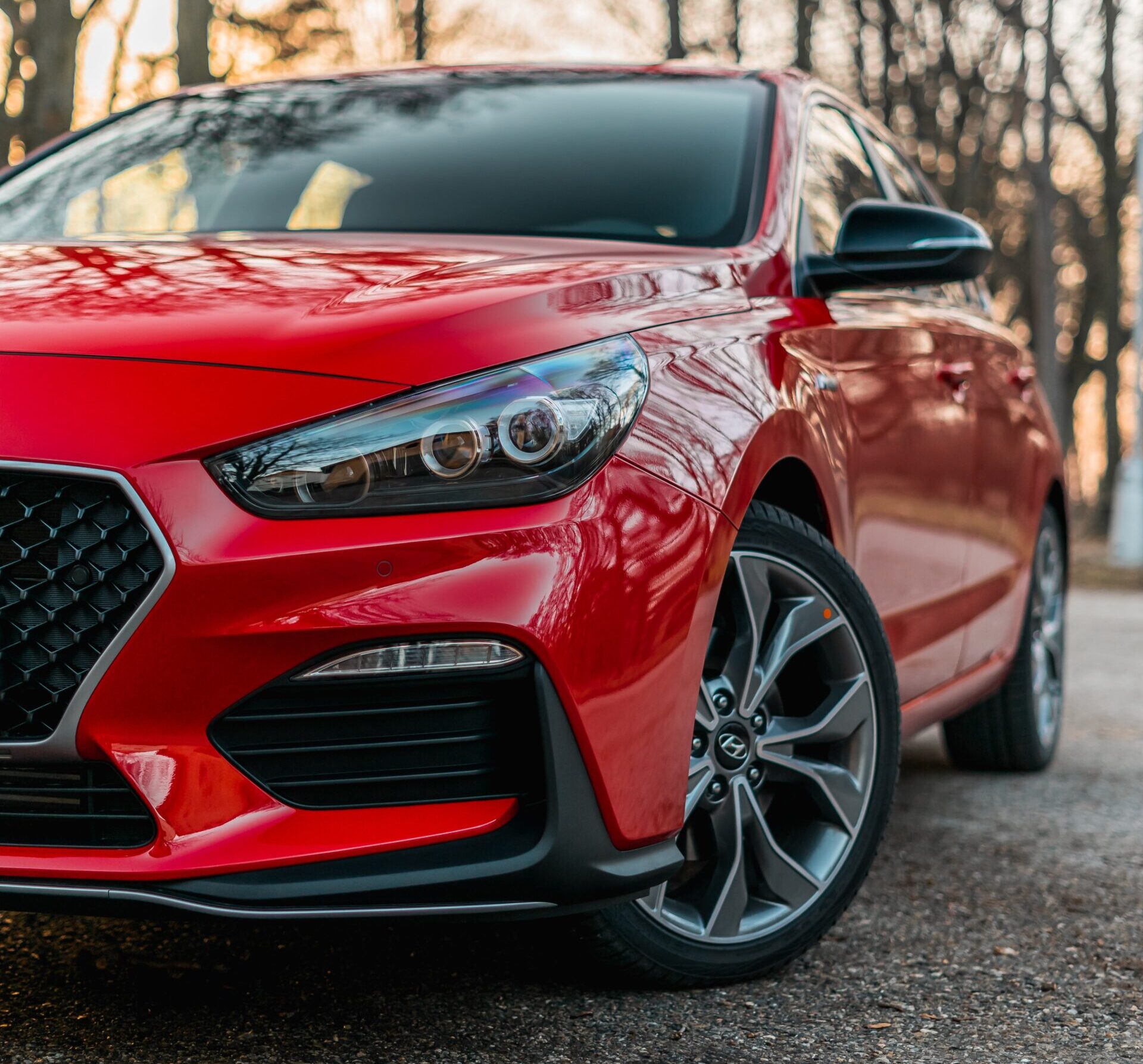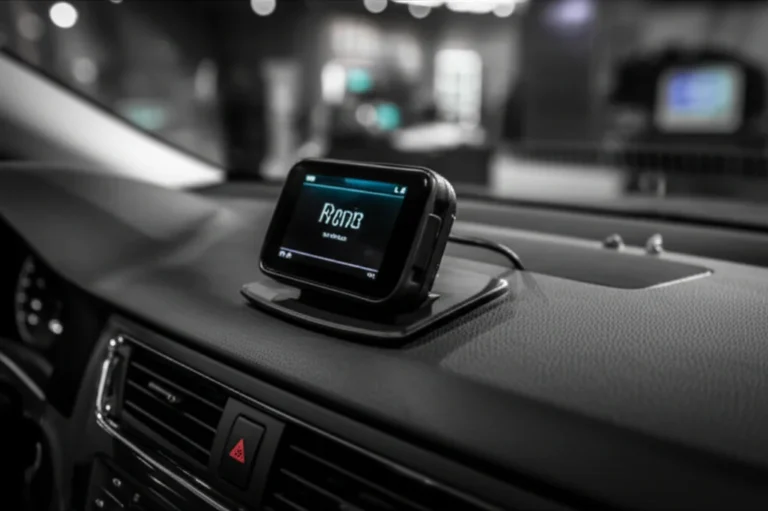Support our educational content for free when you purchase through links on our site. Learn more
Car Lease Acquisition Fee Explained: 8 Insider Secrets You Must Know! 🚗 (2025)
If you’ve ever glanced at your car lease paperwork and scratched your head at the mysterious “acquisition fee,” you’re not alone. This seemingly sneaky charge can add hundreds—even over a thousand dollars—to your lease, but what exactly is it? Why is it charged? And more importantly, can you negotiate it or avoid it altogether? At Car Leases™, we’ve helped thousands of drivers decode this fee and master the art of leasing without getting blindsided.
In this comprehensive guide, we’ll unpack everything you need to know about the car lease acquisition fee—from its origins and typical costs to savvy negotiation tactics and how it fits into the bigger picture of lease fees. Plus, we’ll reveal expert tips on minimizing your overall lease expenses and avoiding common pitfalls. Ready to become a leasing ninja and keep more cash in your pocket? Keep reading, because the real secrets come later—like how rolling the fee into your monthly payments can actually save you money if life throws a curveball.
Key Takeaways
- The acquisition fee is a non-negotiable administrative charge set by the leasing company to cover credit checks, paperwork, and processing costs.
- Dealers may mark up this fee, and that markup is negotiable—always shop around and ask for a breakdown.
- You can pay the acquisition fee upfront or roll it into your monthly payments; rolling it in often protects your cash if the lease ends early.
- Other lease fees like disposition, excess mileage, and wear-and-tear charges can add up—know them all before signing.
- Negotiating the vehicle’s selling price is your best leverage to offset the acquisition fee and secure a better overall deal.
- Timing your lease and using multiple dealer quotes can unlock significant savings beyond just the acquisition fee.
Ready to dive deeper? Our expert insights will guide you through every twist and turn of the leasing maze!
Table of Contents
- ⚡️ Quick Tips and Facts: Your Acquisition Fee Cheat Sheet
- 🚗 The Genesis of Your Lease: Understanding the Acquisition Fee’s Roots
- 🔍 What Exactly is a Car Lease Acquisition Fee? Unpacking the Mystery
- 💰 How Much Are Typical Lease Acquisition Fees? Setting Your Expectations
- 🕵️♀️ Spotting the Acquisition Fee: Where to Find It on Your Lease Agreement
- 💳 Your Options for Paying the Acquisition Fee: Upfront or Rolled In?
- 🤝 Can You Negotiate the Car Lease Acquisition Fee? Our Expert Take
- 🤯 Beyond the Acquisition Fee: Other Essential Lease Fees to Watch Out For
- The Dreaded Disposition Fee: Returning Your Ride (and Paying for It!)
- Early Termination Fees: Breaking Up is Hard to Do (and Costly!)
- Excess Mileage Charges: Piling on the Miles (and the Bills)
- Wear and Tear Charges: The Price of Living Life (in Your Leased Car)
- Documentation Fees (Doc Fees): The Paperwork Hustle
- Registration and Title Fees: The Government’s Cut of Your Lease
- Sales Tax: Uncle Sam’s Share on Your Monthly Payments
- Security Deposit: Your Lease’s Safety Net (and Your Money’s Hold)
- ⚖️ Acquisition Fee vs. Dealer Fees: Understanding the Distinction for Lease Costs
- 💡 Smart Strategies to Minimize Your Overall Lease Costs (Beyond the Acquisition Fee)
- ✅ Our Top Recommendations for a Smooth Leasing Experience
- 🏁 Conclusion: Mastering the Acquisition Fee and Beyond for a Savvy Lease
- 🔗 Recommended Links for Savvy Leasers
- ❓ Frequently Asked Questions (FAQ) About Lease Acquisition Fees
- 📚 Reference Links and Further Reading
Alright, buckle up, buttercup! The Car Leases™ team is here to demystify one of the most common—and commonly misunderstood—charges you’ll encounter when you slide into the driver’s seat of a shiny new lease: the acquisition fee. We’ve seen it all, from sky-high fees on luxury imports to surprisingly modest charges on daily drivers. We’re going to pull back the curtain on this fee, tell you what it is, why it exists, and—the million-dollar question—if you can sweet-talk your way out of it. Let’s dive into the nitty-gritty of Car Leases and get you prepped for the dealership.
⚡️ Quick Tips and Facts: Your Acquisition Fee Cheat Sheet
In a hurry? Here’s the skinny on car lease acquisition fees.
- What is it? An administrative fee charged by the leasing company (the bank or financial institution, not the dealer) to set up your lease. Think of it as an “origination fee” for your car lease.
- What’s it for? It covers the costs of running credit checks, verifying your insurance, and processing all that glorious paperwork.
- How much is it? Typically, it ranges from a few hundred dollars to over $1,000. Expect higher fees for luxury brands like Porsche or BMW.
- Is it negotiable? This is the tricky part. The fee itself is set by the bank, so it’s generally not negotiable. However, a motivated dealer might be willing to reduce the car’s selling price to offset the fee, or you might find a dealer who has marked up the base fee, and that markup is definitely negotiable!
- How do I pay it? You have two main options:
- ✅ Pay it upfront as part of your “due at signing” costs.
- ✅ Roll it into your monthly payments by adding it to the capitalized cost of the vehicle.
- Where do I find it? It must be disclosed in your lease agreement, though it might be called a “bank fee” or “administrative fee.” Always ask for a full breakdown of upfront costs!
🚗 The Genesis of Your Lease: Understanding the Acquisition Fee’s Roots
Ever wonder why leasing isn’t just a simple monthly payment? Well, like any major financial transaction, setting up a lease involves a bit of administrative legwork behind the scenes. Before you get the keys, the leasing company—the financial institution that actually owns the car, like Toyota Financial Services or Ford Motor Credit—has to do its homework.
They’re essentially fronting a huge amount of money for a vehicle that you’ll be driving. To protect their investment, they perform several checks. This process is where the acquisition fee is born. It’s the leasing company’s way of covering the cost of doing business to get you approved and on the road. It’s a standard part of the process, much like an origination fee on a mortgage.
🔍 What Exactly is a Car Lease Acquisition Fee? Unpacking the Mystery
Let’s get crystal clear. The acquisition fee is a charge levied by the lessor (the leasing company) to initiate your lease agreement. It’s also known by a few other names, which can be confusing. You might see it listed as:
- Bank Fee
- Administrative Fee
- Origination Fee
No matter the name, its purpose is the same: to cover the administrative costs of creating the lease. This is a crucial part of our Car Lease Basics guide.
Why Do Lessors Charge This Fee? The Lender’s Perspective
From the lender’s point of view, this fee is non-negotiable because it covers real costs. These tasks include:
- Pulling and reviewing your credit report: They need to ensure you’re a reliable borrower.
- Verifying your insurance and employment: This confirms you can protect their asset and make your payments.
- Processing the title and registration paperwork: There’s a lot of legal documentation involved in putting a car on the road.
- Entering the lease into their data systems: This sets up your account for billing and management.
As Chase Bank notes, “The fee is charged by the leasing company to cover administrative tasks like credit checks, title processing and other required paperwork.”
Is it a Dealer Fee or a Lender Fee? Clearing the Confusion
This is a critical distinction. The acquisition fee is charged by the lender/leasing company, not the dealership. This is why it’s typically not negotiable with the dealer—they don’t set the fee.
However, and this is a big “however,” some leasing companies allow dealers to mark up the acquisition fee. For example, the bank’s base fee might be a certain amount, but the dealer adds a couple of hundred dollars on top for their own profit. This markup IS negotiable. How do you spot it? By getting quotes from multiple dealers for the same vehicle and lease terms. If one dealer’s acquisition fee is suspiciously higher, you’ve likely found a markup.
💰 How Much Are Typical Lease Acquisition Fees? Setting Your Expectations
So, what’s this going to cost you? The fee isn’t a fixed number across the board. It can range from around $595 to $1,095, but we’ve seen them go higher for ultra-premium vehicles.
Here are some examples noted by Capital One to give you a ballpark idea:
- Ford Motor Credit: Around $645
- Toyota Prius: Around $650
- General Motors (GM): Similar fees to Ford and Toyota
- Porsche: Can be as high as $1,095
Generally, the more expensive the car, the higher the acquisition fee. It’s just one of the costs of playing in the luxury sandbox.
Factors Influencing the Acquisition Fee Amount: It’s Not Always Standard
While the manufacturer’s financing arm sets the base fee, a few things can influence the final number you see:
- The Vehicle’s Price: Luxury and high-end models command higher fees.
- The Lessor: Different banks have different fee structures.
- Your Creditworthiness: While the fee itself isn’t directly tied to your credit score, your overall credit profile can influence the entire deal, including which financing options are available to you. Learn more about Credit Score and Car Leasing.
- Dealer Markup: As we mentioned, this is the wild card. Always be vigilant!
🕵️♀️ Spotting the Acquisition Fee: Where to Find It on Your Lease Agreement
Federal and state regulations require lessors to disclose all fees, but sometimes they can be buried in the fine print. When you get your lease agreement, don’t just skim to the signature line! Take your time and look for a section detailing the “Amount Due at Lease Signing” or a breakdown of the “Gross Capitalized Cost.”
Decoding the Lease Contract: Key Sections to Check for Upfront Costs
Your lease agreement should clearly itemize all costs. Look for line items such as:
- Acquisition Fee / Bank Fee / Admin Fee
- First Month’s Payment
- Capitalized Cost Reduction (Down Payment)
- Security Deposit
- Taxes, Title, and Registration Fees
- Dealer Documentation Fee (“Doc Fee”)
If you don’t see the acquisition fee clearly listed, ask the finance manager to point it out. A transparent dealership will have no problem breaking down every single charge for you.
💳 Your Options for Paying the Acquisition Fee: Upfront or Rolled In?
You’ve found the fee, you know the amount… now how do you pay it? You generally have two choices, and each has its pros and cons. This is a key decision in your Auto Financing Options.
- Pay Upfront: You can pay the fee in cash, along with your first month’s payment and any other due-at-signing costs.
- Roll it into the Lease: The fee can be added to the capitalized cost of the vehicle, which means you’ll pay it off over the life of the lease as part of your monthly payments.
The Pros and Cons of Each Payment Method: What’s Best for Your Wallet?
Deciding how to pay can be tricky. Here’s a table to help you weigh your options:
| Feature | ✅ Pay Upfront | ❌ Roll into Monthly Payments |
|---|---|---|
| Monthly Payment | Lower | Higher |
| Total Cost | Lower (no interest paid on the fee) | Higher (you’ll pay interest, or “rent charge,” on the fee amount over the lease term) |
| Upfront Cash | Higher amount due at signing | Lower amount due at signing |
| Risk if Car is Totaled | High Risk. If your car is stolen or totaled early in the lease, you will not get this fee back. That money is gone forever! | Lower Risk. Since the fee is part of your monthly payment, you only pay for the portion you’ve used. GAP insurance covers the rest. |
Our Expert Take: We almost always recommend rolling the acquisition fee into the monthly payments. Why? It’s all about risk. While it costs slightly more over the long run due to the money factor (interest), it protects you from losing that cash if the car is totaled. As one Reddit user wisely put it, “If the car is totaled – the finance company isn’t going to call you and say ‘oh let us refund your acquisition fee.’ It’s simply a cost of the lease.”
🤝 Can You Negotiate the Car Lease Acquisition Fee? Our Expert Take
This is the question on everyone’s mind. The short answer is no, but also yes. Confusing, right? Let us explain.
- ❌ You can’t negotiate the bank’s base fee. As Chase points out, “Lease acquisition fees are not typically negotiable because they are set by the leasing company, not the dealer.”
- ✅ You can negotiate any dealer markup on the fee. Ask multiple dealers for a quote to spot this.
- ✅ You can negotiate around the fee. This is the pro move. If the dealer wants to make a sale, you can ask them to lower the vehicle’s selling price (the capitalized cost) by an amount equal to the acquisition fee. The fee still exists on paper, but the dealer effectively covers it for you by giving you a better deal on the car.
Strategies for a Savvy Negotiation: Talk Your Way to Savings
While some sources say the fee is rarely negotiable, others suggest it’s worth a shot. Here’s how we approach it:
- Do Your Homework: Research the typical acquisition fee for the car you want. Forums like Leasehackr are invaluable for this.
- Get Competing Offers: This is your best leverage. If Dealer A has a lower all-in cost than Dealer B, you can use that to negotiate.
- Focus on the Overall Deal: Don’t get fixated on just the acquisition fee. Negotiate the selling price of the car first. This is the single most important factor in your lease payment.
- Frame Your Ask: Instead of saying “Waive the acquisition fee,” try saying, “I’m ready to sign today if you can get my due-at-signing amount down by [amount of the fee] by adjusting the vehicle price.”
When Negotiation Might Not Be Possible: Hard Truths About Lease Fees
Sometimes, the answer is just no. This is especially true for:
- High-demand vehicles: If there’s a line of people waiting to lease that car, the dealer has little incentive to cut you a special deal.
- Certain brands: Some luxury brands have very rigid fee structures.
- End-of-month sales goals: If the dealer has already hit their numbers, they may be less flexible.
If you can’t get them to budge on the fee, focus on other negotiable parts of the lease, like the selling price, money factor, or even the trade-in value of your old car.
🤯 Beyond the Acquisition Fee: Other Essential Lease Fees to Watch Out For
The acquisition fee is just the beginning of your leasing journey. To be a truly savvy leaser, you need to be aware of all the potential charges from start to finish. Here’s a rundown of other common fees.
-
The Dreaded Disposition Fee: Returning Your Ride (and Paying for It!)
- What it is: A fee charged at the end of your lease to cover the cost of cleaning, inspecting, and preparing the vehicle for resale. Think of it as the opposite of the acquisition fee.
- Typical Cost: Usually a few hundred dollars.
- How to Avoid It: ✅ You can often avoid this fee if you lease or purchase another vehicle from the same brand (a loyalty waiver) or if you buy the car at the end of the lease.
-
Early Termination Fees: Breaking Up is Hard to Do (and Costly!)
- What it is: A substantial penalty if you need to end your lease agreement before the scheduled term is up.
- Typical Cost: Can be very expensive, often requiring you to pay a large portion of the remaining payments.
- How to Avoid It: ✅ Plan to stick with your lease for the full term. If you must exit early, explore options like a lease transfer service (e.g., Swapalease).
-
Excess Mileage Charges: Piling on the Miles (and the Bills)
- What it is: A per-mile charge for every mile you drive over the limit specified in your contract.
- Typical Cost: Often ranges from $0.15 to $0.30 per mile. This adds up incredibly fast!
- How to Avoid It: ✅ Be realistic about your driving habits upfront and choose a mileage allowance that fits your lifestyle.
-
Wear and Tear Charges: The Price of Living Life (in Your Leased Car)
- What it is: Charges for damage that goes beyond what the lessor considers “normal.” This could include large dents, torn upholstery, or heavily worn tires.
- Typical Cost: Varies wildly depending on the extent of the damage.
- How to Avoid It: ✅ Take good care of your car! Consider getting a pre-inspection a few months before your lease ends to identify and fix any potential issues yourself, which is often cheaper.
-
Documentation Fees (Doc Fees): The Paperwork Hustle
- What it is: A fee the dealership charges for processing the paperwork for the sale. This is a dealer fee, not a bank fee.
- Typical Cost: Varies by state; some states cap it, while in others it can be several hundred dollars.
- Is it Negotiable? Rarely, as dealers must charge it consistently, but you can negotiate the car’s price to offset it.
-
Registration and Title Fees: The Government’s Cut of Your Lease
- What it is: The standard fees your state’s DMV charges to register the vehicle and issue plates.
- Typical Cost: Set by your state and is non-negotiable.
-
Sales Tax: Uncle Sam’s Share on Your Monthly Payments
- What it is: Most states charge sales tax on the monthly payment of a lease. Some states require tax on the full value of the car upfront.
- Typical Cost: Based on your state and local tax rates.
-
Security Deposit: Your Lease’s Safety Net (and Your Money’s Hold)
- What it is: A refundable deposit held by the leasing company to cover any potential end-of-lease charges.
- Typical Cost: Often equal to one monthly payment.
- Is it Required? Not always. Many leases for customers with good credit do not require a security deposit. You can often negotiate to have it waived.
⚖️ Acquisition Fee vs. Dealer Fees: Understanding the Distinction for Lease Costs
It’s easy to lump all these charges together, but it’s vital to know who you’re paying.
| Fee Type | Charged By | Negotiable? | Example |
|---|---|---|---|
| Lender/Bank Fees | The Leasing Company (e.g., Honda Financial) | Generally No | Acquisition Fee, Disposition Fee |
| Dealer Fees | The Dealership | Sometimes (or can be offset) | Doc Fee, Dealer Prep, Market Adjustments |
| Government Fees | State/Local Government | No | Sales Tax, Title & Registration |
Knowing this helps you direct your negotiation efforts effectively. Don’t waste your breath arguing with a sales manager about a non-negotiable bank fee; focus on the parts of the deal they can control, like the selling price and their own dealer fees.
💡 Smart Strategies to Minimize Your Overall Lease Costs (Beyond the Acquisition Fee)
Want to be a leasing black belt? It’s about more than just one fee. It’s about a holistic strategy. In the world of leasing, knowledge is power, and a great strategy can save you thousands.
This is where we bring in some expert advice from the wider world of auto enthusiasts. In a popular video, leasing expert Ray Shefska lays out a simple but powerful framework for getting a great deal. His core advice is to focus on the selling price, put zero money down, and reject pointless add-ons.
Here’s how to apply that wisdom:
- Negotiate the Selling Price, Not the Payment: This is rule #1. Before you ever talk about monthly payments, agree on the purchase price of the car as if you were buying it. This prevents the dealer from playing shell games with the money factor or residual value to hit your payment target while padding their profit.
- Embrace the “Zero Drive-Off” Philosophy: Shefska strongly advises against putting any money down on a lease (a “cap cost reduction”). Why? Because if the car is totaled, “All that money’s gone. You never get any of that money back.” [cite: first YouTube video] Since leases come with GAP insurance, you’re protected without risking your own cash. Roll all your fees—including the acquisition fee—into the payment.
- Question the Money Factor: Ask the dealer for the “buy rate” money factor from the bank. They are allowed to mark this up for extra profit. Knowing the base rate allows you to negotiate away that markup.
- Scrutinize Every Fee: Just like we discussed with the acquisition fee markup, dealers can add profit elsewhere. Ask them directly: “Are you marking up the bank’s acquisition fee?” A direct question often gets a direct answer.
- Just Say No to Useless Add-ons: As Shefska exclaims, “An extended warranty on a lease is pointless!” [cite: first YouTube video] A standard 3-year/36,000-mile factory warranty covers most lease terms. Don’t pay extra for coverage you already have.
The Power of Research and Comparison: Your Best Negotiation Tool
The best way to save money is to be prepared. Before you set foot in a dealership:
- Research Target Deals: Check out our Latest Car Lease Deals and forums like Leasehackr to see what kind of deals others are getting on the same car.
- Email Multiple Dealers: Contact the internet sales departments of several dealerships with a specific request for a lease quote on the exact car you want. This forces them to compete on price.
- Consider an Electric Vehicle Lease: Often, government incentives and manufacturer promotions can lead to surprisingly aggressive lease deals on EVs.
Timing Your Lease Deal Just Right: When the Stars Align for Savings
You can often get a better deal by leasing at strategic times:
- End of the Month/Quarter/Year: Dealers are desperate to hit sales quotas and are more likely to offer discounts.
- When a Model is Being Redesigned: Dealers want to clear out the old inventory to make room for the new model year.
- During Holiday Sales Events: Look for manufacturer-backed promotions around holidays like Labor Day or Memorial Day.
Considering a Lease Broker: An Expert in Your Corner
If all this sounds like too much work, a lease broker can be a great option. They leverage their knowledge and relationships with multiple dealerships to find you the best deal, often for a flat fee. They handle the negotiation for you, saving you time and stress.
✅ Our Top Recommendations for a Smooth Leasing Experience
Here at Car Leases™, we’ve guided thousands of drivers through this process. Here’s our final, distilled wisdom on handling the acquisition fee and securing a great lease:
- Acknowledge the Fee: Understand that the acquisition fee is a standard, legitimate part of most leases. Don’t go in expecting to have it magically erased.
- Always Try to Negotiate Around It: While the fee itself is fixed, the car’s price isn’t. Use the fee as a bargaining chip to get a lower capitalized cost.
- Put as Little Money Down as Possible: We can’t stress this enough. Roll the acquisition fee and all other upfront costs into your monthly payment to protect your cash.
- Read Every Line of Your Contract: Knowledge is your shield. Understand every fee before you sign. If something is unclear, demand an explanation.
- 👉 Shop Around: The single best way to ensure you’re not overpaying on the acquisition fee (or any other part of the lease) is to get quotes from multiple sources.
👉 Shop for your next lease on:
- Popular Brands: TrueCar | Edmunds | Auto Trader
- Luxury Brands like Audi or Mercedes-Benz:
- Audi: TrueCar | Edmunds | Audi Official Website
- Mercedes-Benz: TrueCar | Edmunds | Mercedes-Benz Official Website
🏁 Conclusion: Mastering the Acquisition Fee and Beyond for a Savvy Lease
So, what’s the final word on the elusive car lease acquisition fee? It’s a standard, unavoidable part of most leases, charged by the leasing company to cover the administrative costs of getting your lease up and running. While it might sting to see a few hundred to over a thousand dollars tacked on, understanding what it is—and how it fits into the bigger picture—gives you the power to negotiate smarter and lease better.
Here’s the bottom line: You probably can’t negotiate the fee itself, but you can negotiate the overall deal to offset it. Dealers may mark up this fee, and that markup is fair game for negotiation. Plus, rolling the fee into your monthly payments is usually the safest financial move, protecting your upfront cash if life throws a curveball like an accident or early lease termination.
Beyond the acquisition fee, be vigilant about other lease costs—disposition fees, excess mileage charges, wear and tear penalties, and dealer doc fees can all sneak up on you if you’re not paying attention. The savvy leaser focuses on the selling price of the car, the money factor, and the total cost of the lease, not just the monthly payment.
At Car Leases™, we recommend doing your homework, comparing multiple offers, and never signing without a full understanding of every fee. Leasing can be a fantastic way to drive a new car without the long-term commitment of buying—just don’t let hidden fees drive your wallet into the ditch!
🔗 Recommended Links for Savvy Leasers
Ready to shop smart and lease smarter? Here are some trusted platforms to start your search and compare deals on popular and luxury brands:
- Ford Vehicles: TrueCar | Edmunds | Ford Official Website
- Toyota Vehicles: TrueCar | Edmunds | Toyota Official Website
- General Motors (Chevrolet, GMC, Cadillac): TrueCar | Edmunds | Chevrolet Official Website
- Porsche: TrueCar | Edmunds | Porsche Official Website
- Audi: TrueCar | Edmunds | Audi Official Website
- Mercedes-Benz: TrueCar | Edmunds | Mercedes-Benz Official Website
❓ Frequently Asked Questions (FAQ) About Lease Acquisition Fees
What is a car lease acquisition fee and why is it charged?
The acquisition fee is a charge imposed by the leasing company to cover the administrative costs of initiating your lease. This includes credit checks, title processing, insurance verification, and paperwork. It’s essentially the leasing company’s way of recouping the expenses involved in setting up your lease contract.
Can the acquisition fee be negotiated when leasing a car?
The base acquisition fee set by the leasing company is generally non-negotiable. However, dealers sometimes mark up this fee to increase their profit. That markup is negotiable. Additionally, savvy leasers can negotiate the overall deal—such as the vehicle’s selling price—to offset the acquisition fee’s impact on the total lease cost.
How does the acquisition fee affect the overall cost of a car lease?
The acquisition fee adds to your lease’s capitalized cost, which influences your monthly payments. If you pay it upfront, it increases your due-at-signing amount but keeps monthly payments lower. If rolled into the lease, it raises monthly payments and total interest paid over the lease term. The choice affects your cash flow and total lease cost.
Are there any ways to reduce or waive the car lease acquisition fee?
While the fee itself is usually fixed, some dealers may waive or reduce their markup on the fee to close a deal. Loyalty programs or manufacturer promotions occasionally offer incentives that can offset or cover fees. Always ask the dealer if any such offers apply.
Is the acquisition fee refundable if I terminate my lease early?
No. If you pay the acquisition fee upfront and terminate your lease early (due to accident, buyout, or other reasons), the fee is typically non-refundable. Rolling the fee into monthly payments mitigates this risk, as you only pay for the portion of the lease you use.
How do acquisition fees vary between different car manufacturers?
Acquisition fees vary widely. For example:
- Ford Motor Credit typically charges around $645.
- Toyota’s acquisition fee is often about $650.
- Luxury brands like Porsche can charge upwards of $1,095.
These differences reflect the leasing company’s policies and the vehicle’s market segment.
What other fees should I watch for when getting the best car lease deal?
Besides the acquisition fee, watch out for:
- Disposition Fee: Charged at lease-end for vehicle preparation.
- Excess Mileage Charges: Fees for driving beyond your mileage limit.
- Wear and Tear Fees: For damage beyond normal use.
- Documentation Fees: Dealer charges for processing paperwork.
- Registration and Title Fees: Government-mandated costs.
- Security Deposits: Refundable deposits held by the lessor.
Understanding all these fees helps you avoid surprises and negotiate a better deal.
📚 Reference Links and Further Reading
- Chase Auto Education on Lease Acquisition Fees
- Capital One’s Guide to Lease Acquisition Fees
- Acquisition Fee – Ask the Hackrs – Leasehackr Forum
- Ford Motor Credit
- Toyota Financial Services
- Porsche Financial Services
- Leasehackr Forum — A treasure trove of real-world lease deals and community wisdom
- Edmunds Lease Guide
- TrueCar Lease Deals
With these insights, you’re now armed to tackle the acquisition fee like a pro and steer your lease deal toward smooth sailing. Happy leasing! 🚗💨




